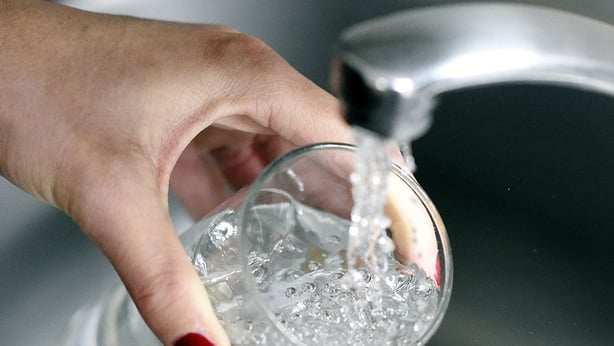Europe's highest court has ruled that the concentration of certain chemical compounds in Irish drinking water have exceeded European Union safety levels.
The European Court of Justice said that Ireland had failed to meet its obligations under an EU directive on safe drinking water.
According to the court, trihalomethanes (known as THMs) are chemical compounds often found in drinking water, especially in water treatment systems that use chlorine to remove bacteria and contaminants.
They are dangerous to both human health and to the environment, the court said.
Uisce Éireann said it noted the ruling and that it is "determined to address the remaining THM non-compliances effectively",
Ireland was taken to court by the European Commission for allegedly failing to ensure that THMs in drinking water did not exceed the minimum values outlined in the directive.
The commission had said that Ireland had failed to adopt the necessary measures to be in compliance with the directive, relating to the concentration of THMs, and had failed to restore the quality of drinking water "as quickly as possible."
In a statement, the ECJ said that on 1 January 2014, Uisce Éireann had been tasked to ensure that the quality of drinking water met the standards established by Directive 98/83 on the quality of water intended for human consumption, as well as by national rules transposing the directive into Irish law.
In early 2015, the Irish authorities provided the commission with detailed information on the extent of THM concentrations in drinking water.
On 11 May 2015, the commission told the Irish authorities they were not in compliance with the directive.
In May 2020, after a series of bilateral contacts, the commission sent what is called a "reasoned opinion" to Ireland, repeating its view that THM concentrations exceeded the minimum values outlined in the Directive.
It ordered Ireland to comply with its obligations by 15 September 2020.
Read more:
Ireland to be referred to EU court over water directive failure
According to a court statement, the commission was not satisfied with the subsequent responses between September 2020 and June 2021 so it began an infringement proceeding.
Under the proceedings the commission had raised two complaints.
The first was that the Irish authorities had failed to adopt the necessary measures to ensure that drinking water met the minimum THM requirements in public water distribution zones and in private water supply groups.
The second was that the authorities had failed to take measures "as quickly as possible" to restore the quality of drinking water in these areas, "despite the seriousness of the situation and the potential danger it could do to human health".
Under today's judgement, the ECJ stated that, although Ireland was free to define how it implemented the directive within its own legal system, it nevertheless had an obligation to respect all its provisions, including those related to THM concentrations.

over a considerable time-period, the court held
The ECJ held that Ireland could not "fully justify" the existence of a persistent failure to fulfil its obligations.
The high levels of THM concentrations in drinking water had been observed over a considerable time-period, the court held.
Furthermore, Ireland had failed to contest any facts alleged in the detailed complaints by the commission and did not make use of derogations provided in the directive itself.
The court held that the European Commission, based on the information provided by Ireland on the levels of THM concentrations, had provided "sufficient evidence to support Ireland’s alleged breach".
It was up to Ireland to determine the measures it deemed appropriate in order to comply with the directive, when it came to the minimum levels of THM concentrations outlined and to inform the commission of such measures and their progress.
"By failing to do so as quickly as possible, the Court finds that Ireland did not ensure that the time-period during which it exceeded the minimum value of THM concentrations in its drinking water was as short as possible," according to a court statement.
The ECJ therefore ruled that Ireland had failed to fulfil its obligations under Article 4 of the safe drinking water directive.
Uisce Éireann 'determined to address' issues
Uisce Éireann said it noted the ruling, adding that "public health is our top priority".
In a statement, the company said it continues "to invest in our infrastructure and implement operational improvement measures to adhere to the standards set out in the Drinking Water Directive and deliver world class drinking water supplies for all our customers".
Uisce Éireann said it is "determined to address the remaining THM non-compliances effectively" and has "already made significant progress in addressing these issues".
"It is important to assure customers on the remaining schemes that water is safe to drink," the company added.







